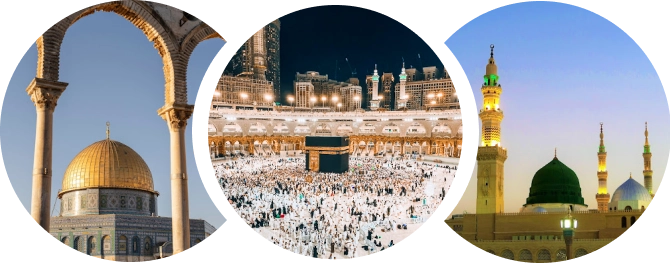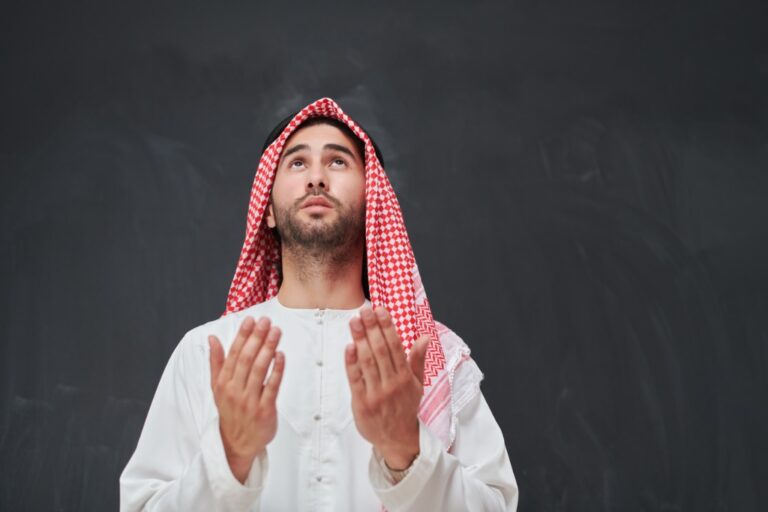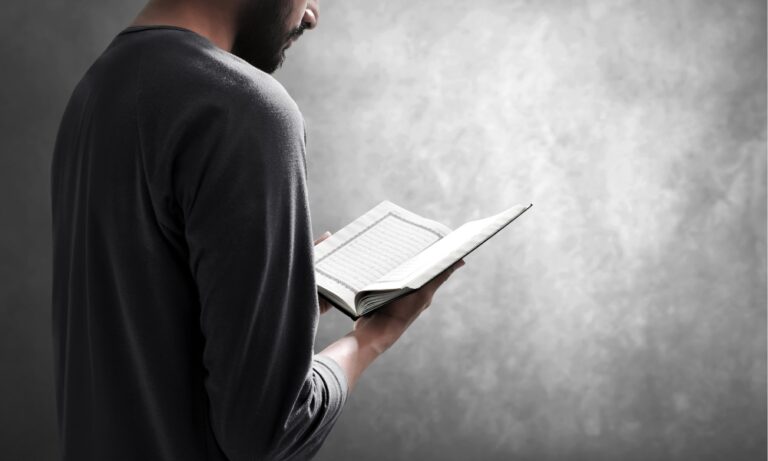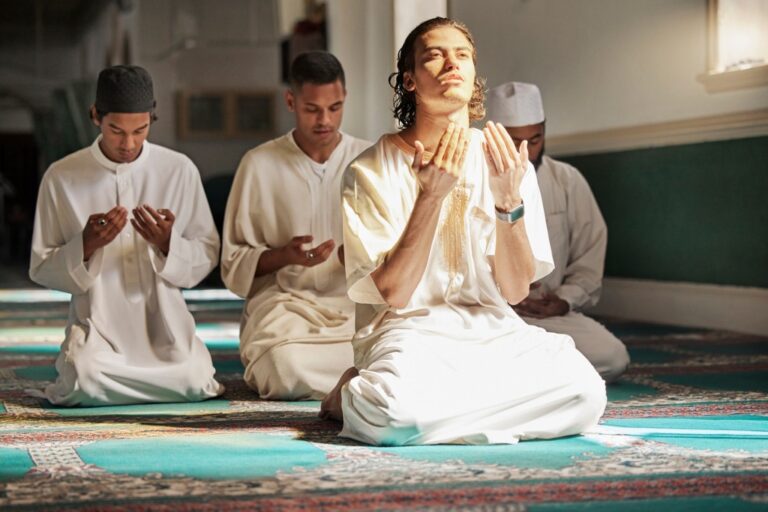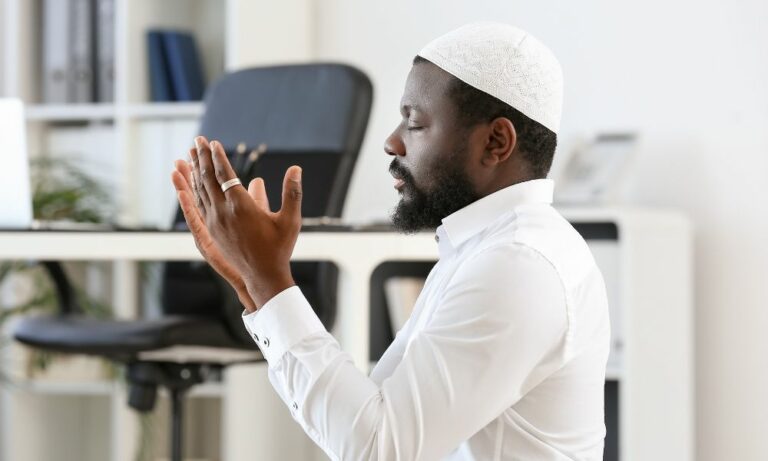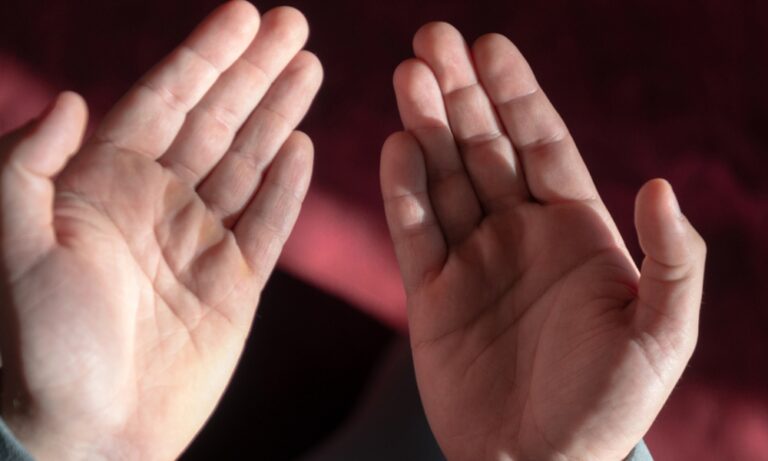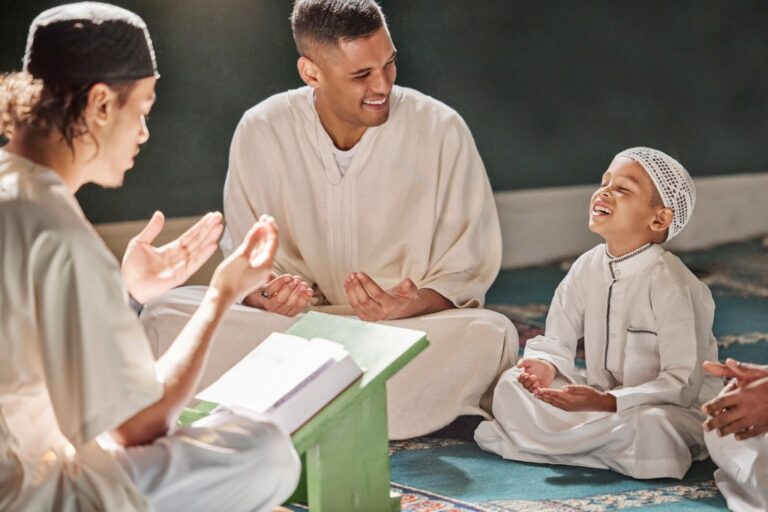Dua to Recite Before and After Eating
As we all know, eating is necessary for survival, but did you know that in Islam, even this act can be made meaningful by reciting a Dua? Dua before and after eating demonstrates gratitude towards Allah SWT and encourages mindful consumption of sustenance.
In this article, we’ll delve into the specifics of these Duas, their importance, and how they tie into the overall eating etiquette within Islam. Let’s begin this enlightening journey to refine our dining habits per the Islamic teachings.
Recite These Duas Before and After Eating
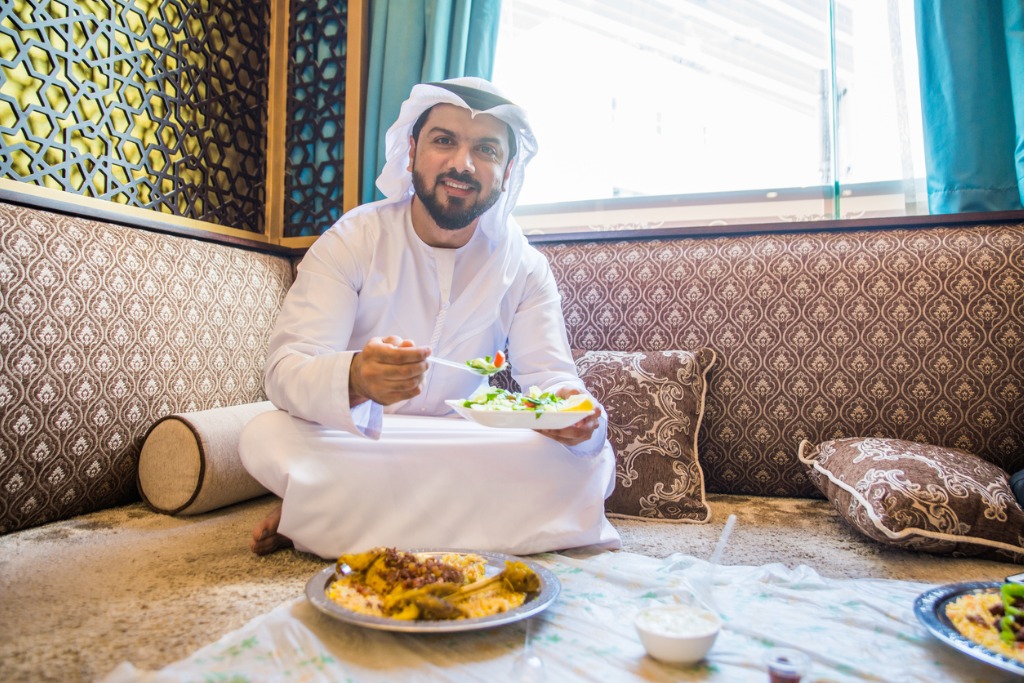

There are several hadiths about the etiquette of eating in Islam. The most important of them is reciting the Dua before eating. This is because, according to a hadith, if someone does not say Allah’s name before eating, Satan (Shaytan) eats from their food.
“Satan considers that food lawful for himself on which the Name of Allah (i.e., Bismillah) is not mentioned.” Riyad as-Salihin 730
Prophet Muhammad PBUH also said:
سم الله وكل بيمينك، وكل مما يليك”.”
“Mention Allah’s Name (i.e., say Bismillah before eating), eat with your right hand, and eat from what is near you.” Riyad as-Salihin 727
So, you need to say Bismillah (in the name of Allah) or Bismillah Al Rahman Al Raheem before eating. But “What if you forgot to recite the Dua before eating?” Prophet Muhammad PBUH has also given us a solution for that:
“إذا أكل أحدكم فليذكر اسم الله تعالى، فإذا نسى أن يذكر اسم الله تعالى في أوله، فليقل، بسم الله أوله وآخره”
“When any of you wants to eat, he should mention the Name of Allah in the beginning (i.e., say Bismillah). If he forgets to do it in the beginning, he should say Bismillah awwalahu wa akhirahu (I begin with the Name of Allah at the beginning and the end).” Riyad as-Salihin 728
Even if you recite this Dua just before your last bite, it will benefit you! In a hadith, a person ate without saying Bismillah, and Satan was eating with him. When he was about to eat his last bite, he said, “Bismillah awwalahu wa akhirahu,” and Prophet Muhammad PBUH smiled and said, “Satan had been eating with him, but when he mentioned the Name of Allah, Satan vomited all that was in his stomach.” Riyad as-Salihin 731
Dua After Eating
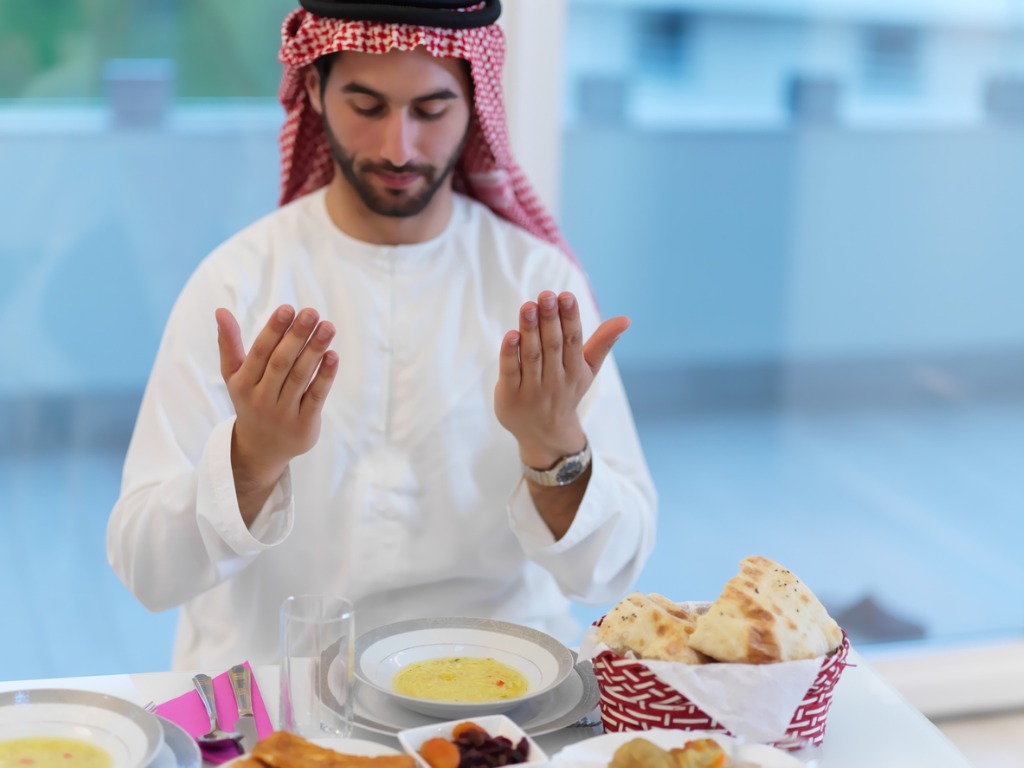

Prophet Muhammad PBUH used to recite a few Duas after eating; we will mention two of them below.
The First Dua
الحمد الله الذي أطعمني هذا، ورزقنيه من غير حول منى ولا قوةٍ
Al-hamdu lillahi-lladhi at’amani hadha, wa razaqanihi min chair haulin minni wa la quwwatin (All praise is due to Allah Who has given me food to eat and provided it without any endeavor on my part or any power),’ Riyad as-Salihin 734
Prophet Muhammad PBUH later said in this hadith that whoever recites this Dua, then all his past sins will be forgiven.
The Second Dua
“الحمد لله حمداً كثيراً طَيِّباً مباركاً فيه، غير مكفى ولامودع، ولا مستغنى عنه ربنا
Al-hamdu lillahi hamdan kathiran taiyyiban mubarakan fihi, ghaira makfiyyin wa la muwadda`in, wa la mustaghnan `anhu, Rabbuna.
(All praise is due to Allah, praise which is abundant, pure, and full of blessings, which is indispensable and to which one cannot be indifferent) Riyad as-Salihin 733
- For the most accurate Athan and Prayer times, please click here
Importance of Dua Before and After Eating in Islam
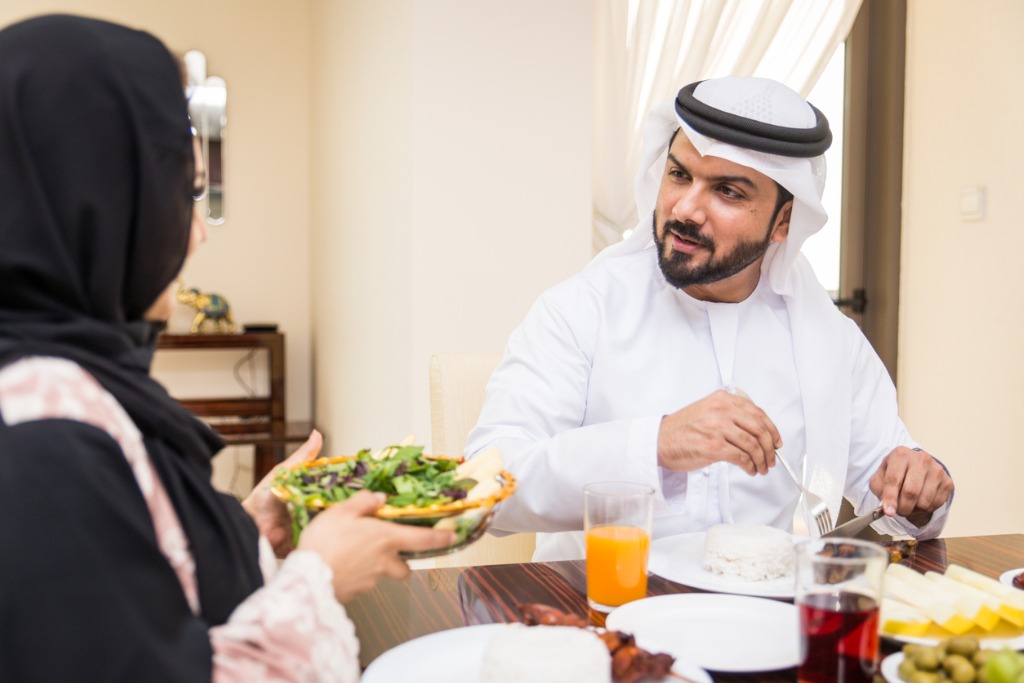

Dua before and after eating is important in Islam as it demonstrates gratitude towards Allah SWT and encourages mindful eating.
Demonstrates Gratitude
Muslims thank Allah SWT for providing food by reciting a Dua before and after meals. The act of saying “Bismillah” or “Bismillah Awwalihi Wa Akhirih”, if you forget to recite it at the beginning, serves as a reminder that every blessing, such as nutritious halal food, comes from Allah SWT.
It emphasizes how Islam promotes gratitude for what we have been given.
Encourages Mindful Eating
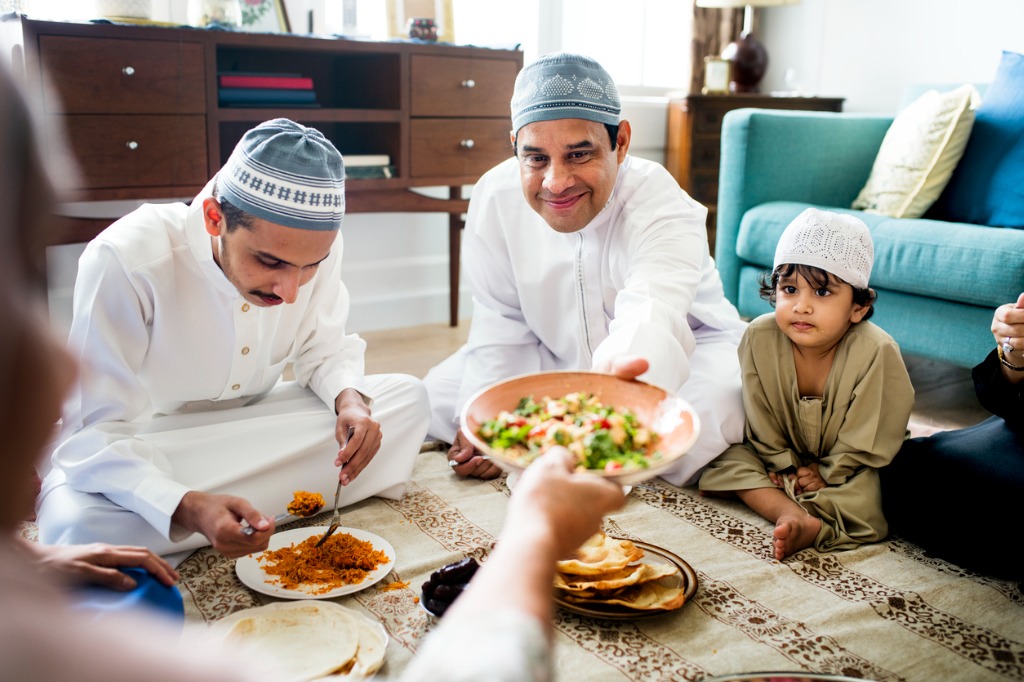

Mindful eating allows people to be present during the act of eating. It is a type of meditation that connects the mind and body, creating an environment in which each bite is appreciated.
Dua before and after eating has been shown to improve mindfulness while dining. When believers recite these supplications, they focus on their actions and the nourishment Allah SWT provides, encouraging them to make conscious choices about what they eat.
Furthermore, incorporating Dua into daily meals emphasizes mindfulness rather than simply satisfying hunger. As a result, it discourages overeating and promotes healthy eating habits among Muslims.
This practice also promotes healthier food relationships by emphasizing the importance of being grateful to Allah SWT for His provision. Making Dua before and after meals promotes spiritual growth and instills healthy lifestyle habits in devotees.
- Download Muslim Sadiq app, and enjoy all top-notch features for everyday activities!
Etiquette of Eating in Islam
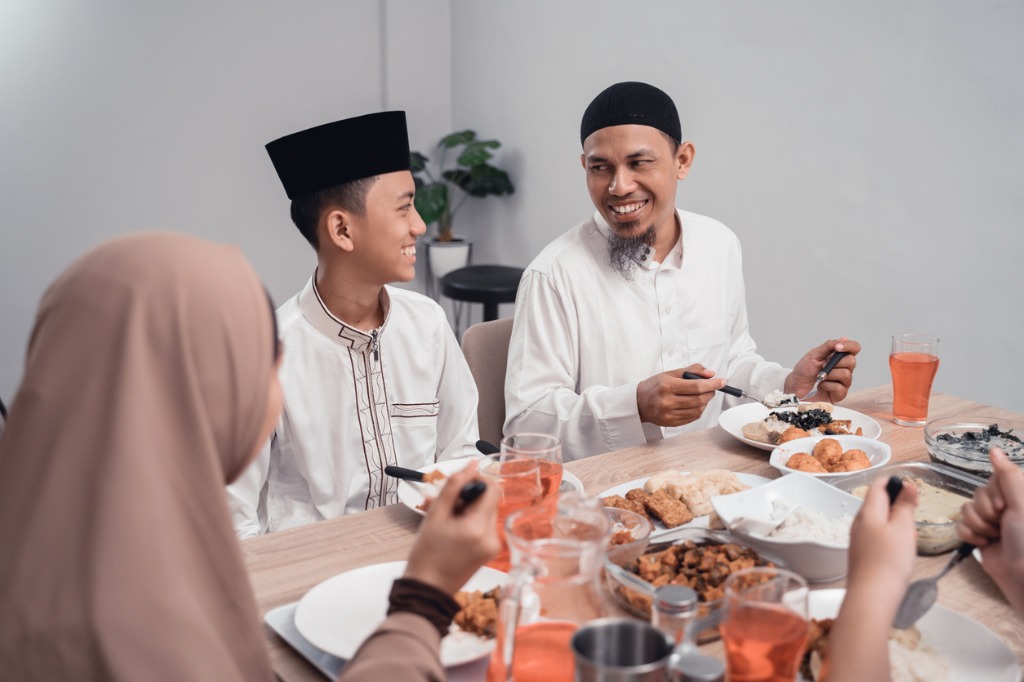

In Islam, there are certain eating etiquette, such as using the right hand, avoiding food criticism, drinking water in two or three gulps, and sharing food with others.
Eat with the Right Hand
Eating with the right hand is a common practice in Islam, introduced and emphasized by Prophet Muhammad PBUH. It reflects the deep-rooted faith teachings that extend even to our dining tables.
Messenger of Allah (PBUH) said to me, “Mention Allah’s Name (i.e., say Bismillah before starting eating), eat with your right hand, and eat from what is near you.” Riyad as-Salihin 727
This rule personifies mindfulness during meals, encouraging us to appreciate our blessings and maintain a humble connection with Allah SWT even during routine daily activities like eating.
Do Not Criticize Food
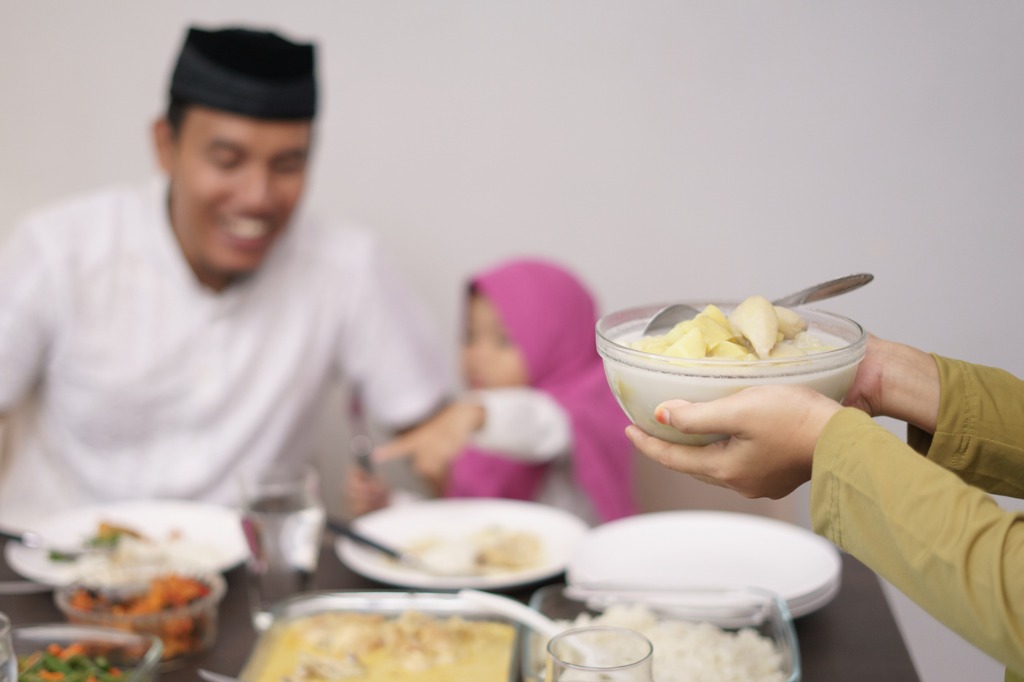

Prophet Muhammad PBUH taught Muslims an important Islamic eating etiquette: do not criticize food. This includes refraining from making negative remarks or complaints about the taste, appearance, or quality of the food served.
Abu Hurairah Narrated:
Messenger of Allah (ﷺ) never found fault with food. If he had the inclination to eat it, he would eat it, and if he disliked it, he would leave it. Riyad as-Salihin 735
Jabir R.A narrated a hadith in which one day, Prophet Muhammad PBUH asked for sauce, which was unavailable and only vinegar was available, so Prophet Muhammad PBUH ate vinegar by saying, “How excellent is vinegar when eaten as sauce! How excellent is vinegar when eaten as Udm!” Riyad as-Salihin 736
Prophet Muhammad PBUH never disrespected food; he always showed gratitude and ate whatever was available.
Drink Water in Two or Three Gulps
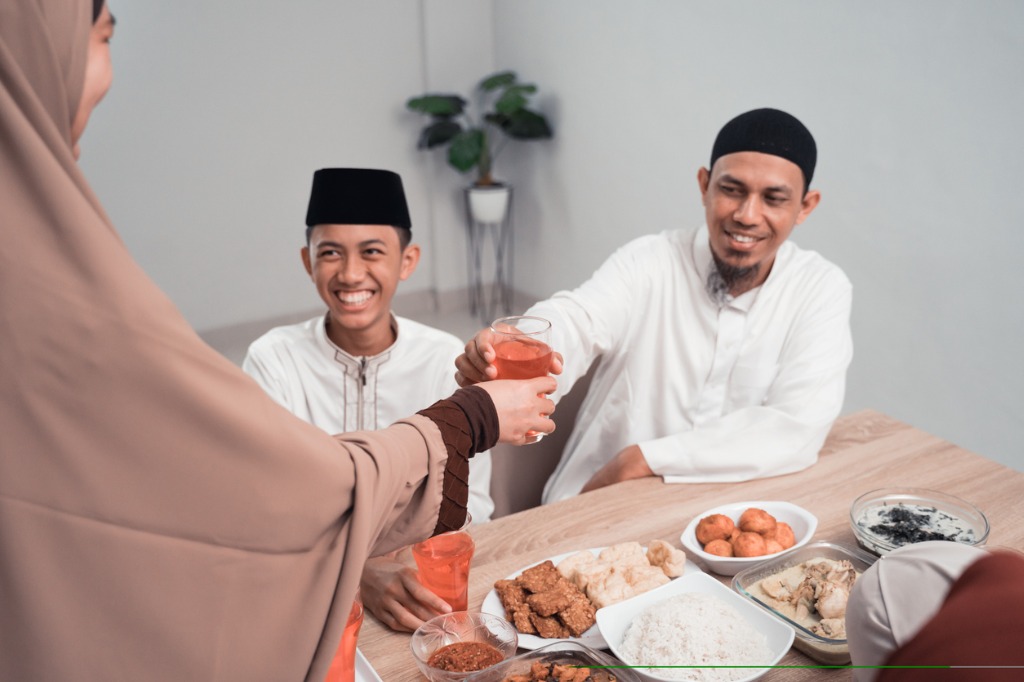

Prophet Muhammad PBUH said:
لا تشربوا واحداً كشرب البعير، ولكن اشربوا مثنى وثلاث، وسموا إذا أنتم شربتم،واحمدوا إذا أنتم رفعتم”.
“Do not drink in one gulp like a camel, but in two or three (gulps). Mention the Name of Allah (i.e., say Bismillah) when you start drinking and praise Him (i.e., say Al-hamdu lillah) after you have finished (drinking).” Riyad as-Salihin 757
In Islam, drinking water in two or three gulps is considered a proper eating etiquette. Prophet Muhammad PBUH taught this practice, emphasizing the importance of moderation and mindfulness when consuming food and drink.
Drinking water in two or three gulps prevents overconsumption and ensures that one is adequately hydrated without overburdening their stomach. This simple act is consistent with Islamic teachings to eat and drink in moderation while appreciating Allah SWT’s blessings.
- Read Al Quran along with interpretation in the easiest way possible by clicking here
Share Food with Others
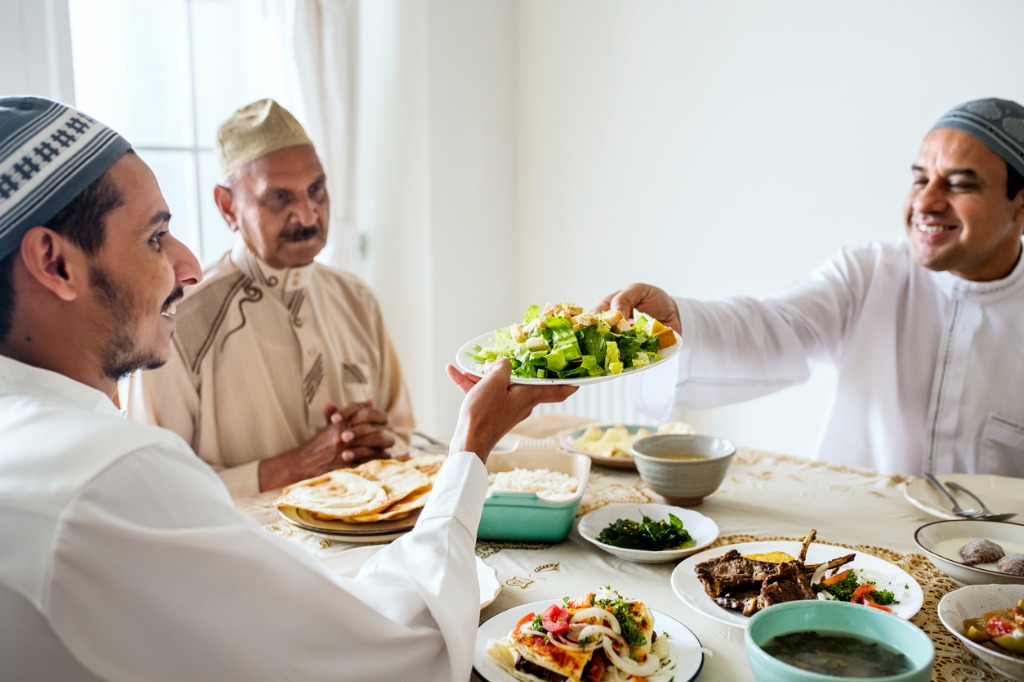

قال رسول الله صلى الله عليه وسلم :طعام الاثنين كافي الثلاثة، وطعام الثلاثة كافي الأربعة”
The Messenger of Allah (ﷺ) said, “The food of two persons suffices for three persons, and the food of three persons suffices for four persons.” Riyad as-Salihin 754
Muslims are encouraged to share food with others as a generous act and to strengthen community bonds. In Islam, it is regarded as a virtuous and noble action. Sharing food shows others hospitality, kindness, and empathy.
Prophet Muhammad PBUH himself emphasized the importance of sharing food with others and fostering community unity and compassion. Sharing our meals with those around us not only fulfills a religious obligation but also promotes a sense of togetherness and solidarity among people from various backgrounds.
Not Eating to Full Stomach
“ مَا مَلأَ آدَمِيٌّ وِعَاءً شَرًّا مِنْ بَطْنٍ حَسْبُ الآدَمِيِّ لُقَيْمَاتٌ يُقِمْنَ صُلْبَهُ فَإِنْ غَلَبَتِ الآدَمِيَّ نَفْسُهُ فَثُلُثٌ لِلطَّعَامِ وَثُلُثٌ لِلشَّرَابِ وَثُلُثٌ لِلنَّفَسِ ” .
‘A human being fills no worse vessel than his stomach. It is sufficient for a human being to eat a few mouthfuls to keep his spine straight. But if he must (fill it), then one-third of food, one-third for drink, and one-third for air.'” Sunan Ibn Majah 3349
Today, some scientific research has proved that eating full stomachs is detrimental to our health, and a study conducted in 2020 has also shown that eating less can strengthen our immune system and it can make us live a healthier life.
- Islamic holidays and important dates are listed here
Conclusion
In Islam, Dua before and after eating is very important. It promotes gratitude and mindful eating while adhering to Prophet Muhammad PBUH’s etiquettes. Muslims express their gratitude to Allah SWT for providing food and seek His blessings by reciting these supplications.
Incorporating Dua into our meals can help us stay connected to our faith while cultivating mindfulness in our daily lives.
FAQs
What is the significance of Dua before and after eating?
Dua before and after eating reflects the Islamic eating etiquettes, a practice guided by the teachings of the Prophet of Allah SWT, referenced in Sahih Al-Bukhari.
What is said at the end of a meal according to Islamic etiquette?
Following Rasulullah’s teaching, one should say “Alhumdulillah” after a meal or recite the Duas mentioned above.
دعاء قبل الأكل وبعده
كما نعلم جميعًا، الأكل ضروري للبقاء على قيد الحياة، ولكن هل تعلم أنه في الإسلام، حتى هذا الفعل يمكن أن يكون له معنى من خلال تلاوة الدعاء؟ الدعاء قبل الأكل وبعده يدل على الامتنان لله سبحانه وتعالى ويشجع على الاستهلاك الواعي للرزق. في هذه المقالة، سوف نتعمق في تفاصيل هذه الأدعية وأهميتها وكيفية ارتباطها بآداب الأكل الشاملة في الإسلام. دعونا نبدأ هذه الرحلة التنويرية لتحسين عاداتنا الغذائية وفقًا للتعاليم الإسلامية.اقرأ هذه الأدعية قبل الأكل وبعده


الدعاء بعد الأكل


- للحصول على أدق أوقات الأذان والصلاة، يرجى النقر هنا
أهمية الدعاء قبل الأكل وبعده في الإسلام


إظهار الامتنان
يشكر المسلمون الله سبحانه وتعالى على توفير الطعام من خلال قراءة الدعاء قبل وبعد الوجبات. إن قول "بسم الله" أو "بسم الله أوليه وآخره"، إذا نسيت قراءتها في البداية، يكون بمثابة تذكير بأن كل نعمة، مثل الطعام الحلال المغذي، تأتي من الله سبحانه وتعالى. ويؤكد كيف يعزز الإسلام الامتنان لما أعطيناه.يشجع على تناول الطعام بوعي


- قم بتنزيل تطبيق مسلم صادق، واستمتع بجميع الميزات المتميزة للأنشطة اليومية!
آداب الأكل في الإسلام


تناول الطعام باليد اليمنى
الأكل باليد اليمنى ممارسة شائعة في الإسلام، سنها وأكد عليها النبي محمد صلى الله عليه وسلم. إنه يعكس التعاليم الإيمانية العميقة الجذور التي تمتد حتى إلى موائد طعامنا. قال لي رسول الله صلى الله عليه وسلم: "اذكر اسم الله (أي قل بسم الله قبل أن تبدأ في الأكل)، وكل بيمينك، وكل مما قريب منك". رياض الصالحين 727 تجسد هذه القاعدة اليقظة الذهنية أثناء الوجبات، وتشجعنا على تقدير النعم التي نتمتع بها والحفاظ على اتصال متواضع مع الله سبحانه وتعالى حتى أثناء الأنشطة اليومية الروتينية مثل تناول الطعام.لا تنتقد الطعام


اشرب الماء على جرعتين أو ثلاث جرعات


- اقرأ القرآن مع التفسير بأسهل طريقة ممكنة بالضغط هنا
مشاركة الطعام مع الآخرين


عدم الأكل حتى امتلاء المعدة
" مَا مَلأَ آدَمِيٌّ وِعَاءً شَرًّا مِنْ بَطْنٍ حَسْبُ الآدَمِيِّ لُقَيْمَاتٌ يُقِمْنَ صُملْبَهُ فَإِنْ غَلَبَتِ نَفْسُهُ فَثُلُثٌ لِلطَّعَامِ وَثُلُثٌ لِلشَرَابِ وَثُلُثٌ لِلنَّفَسِ " . "ما ملأ إنسان وعاءً شراً من بطنه". ويكفي للإنسان أن يأكل لقيمات قليلة حتى يحافظ على استقامة عموده الفقري. فإن كان لا بد فثلث للطعام، وثلث للشراب، وثلث للهواء.» سنن ابن ماجه 3349 اليوم، أثبتت بعض الأبحاث العلمية أن تناول الطعام على معدة ممتلئة يضر بصحتنا، كما أنه أظهرت دراسة أجريت في عام 2020 أيضًا أن تناول كميات أقل من الطعام يمكن أن يقوي جهاز المناعة لدينا ويمكن أن يجعلنا نعيش حياة أكثر صحة.- الأعياد الإسلامية والتواريخ المهمة مدرجة هنا

